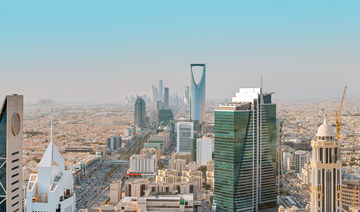DUBAI: Weeks of talks between UAE energy firm Dana Gas and some local holders of a disputed $700 million sukuk have failed to reach an agreement, sources told Reuters, leaving a potentially protracted legal battle as the only available option for now.
Last year, Dana refused to redeem $700 million of maturing Islamic bonds, arguing they were no longer valid under UAE law because of changes in Islamic financial practice over the last several years.
The move shocked the global Islamic finance industry, as some investors worried it could set a precedent for other sukuk issuers who might refuse to repay their obligations on the grounds of religious permissibility.
Dana proposed in June last year to swap its sukuk, held by international investors such as BlackRock as well as UAE investors, with new sharia-compliant bonds, but creditors rejected the proposal, saying the terms were unfavorable.
The case moved to UAE and British courts. Legal proceedings in both countries are continuing, but in November a British court ruled in favor of Dana’s creditors.
In the past few weeks Dana’s financial adviser in the dispute, US firm Houlihan Lokey, has been in talks with some of Dana’s UAE creditors to seek a potential out-of-court solution, several sources familiar with the matter said.
The UAE creditors, represented by Dubai-based Arqaam Capital, include National Bonds Corp., an investment company specializing in sharia-compliant financial products. National Bonds is owned by Investment Corp. of Dubai, an investment arm of the Dubai government.
National Bonds did not respond to a request for comment. Dana and a committee representing major international sukuk holders declined to comment.
Arun Reddy, a managing director at Houlihan Lokey, said: “Dana Gas’ financial adviser has been approached by various local and international creditors over this process. It’s clear from those discussions that creditors, including local creditors, prefer a consensual against a litigation-driven outcome.”
A legal source familiar with the matter said Dana held talks with UAE creditors because “there has always been the view that local creditors were more open than their international counterparts” to a settlement.
Moelis, the firm advising the creditors’ committee, was made aware of the discussions, the sources said.
The talks revolved around Dana’s original restructuring proposal from last June and no new, formal proposal was advanced, which is why they have not led to any meaningful result, the sources said, declining to be named because of commercial sensitivities.
“Discussions were about interest rates, amortizations, conversion rates, but Houlihan didn’t appear to have a mandate to negotiate on these sticky points conclusively,” said one of the sources.
According to two sources, since the talks were not leading anywhere, Moelis decided last week not to engage in them. A third source said, however, that local creditors were not aware of such a decision. Moelis declined to comment.
The lack of a resolution means that going through the courts — which could take many more months or even years, people familiar with the matter have said — may be the only option available, at least for the time being.
New proceedings are scheduled to take place in a British court this month to address issues such as injunctions, obtained in previous phases of the case, that prevent creditors from enforcing claims and limit Dana’s ability to pursue legal action in a court in Sharjah, where the company is headquartered.
“There are still legal mechanisms that the company can use, so the company is still acting as if they have legal ground to put themselves in a better negotiating position,” one creditor said.
— REUTERS
Weeks of talks ‘fail to resolve Dana Gas sukuk dispute’
Weeks of talks ‘fail to resolve Dana Gas sukuk dispute’
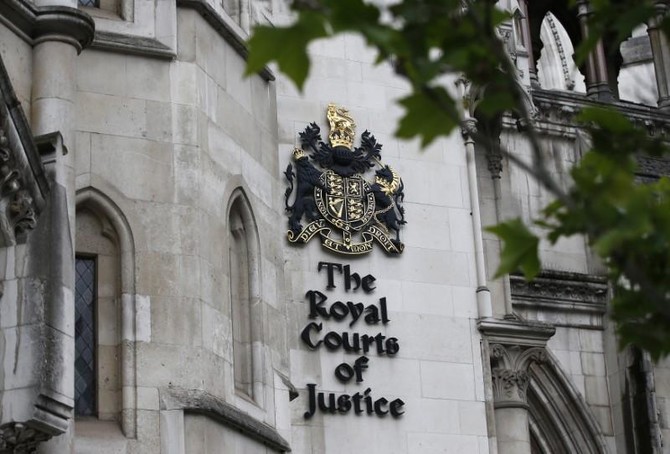
IMF raises its growth forecast for Saudi economy to 6 percent in 2025
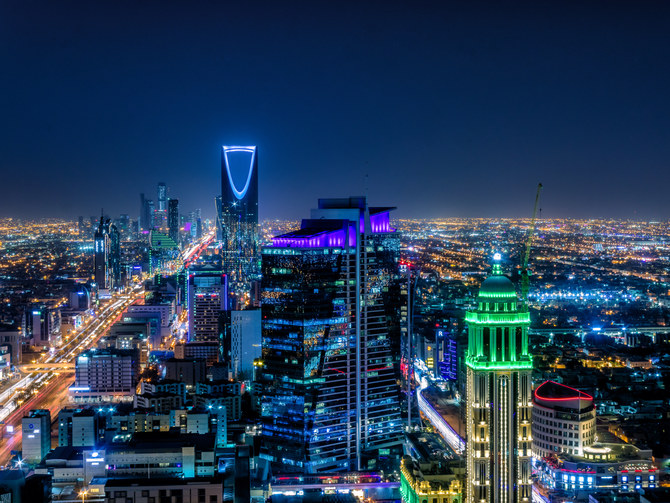
RIYADH: The International Monetary Fund has raised its expectations for Saudi Arabia’s economic growth in 2025 to 6 percent – up from 5.5 percent predicted earlier this year.
In its latest report, the IMF also noted that the Kingdom’s output will grow by 2.6 percent in 2024, down 0.1 percent compared to the previous projection.
The financial institution added that the overall economic growth in the Middle East and Central Asian region is projected at 2.8 percent and 4.2 percent in 2024 and 2025, respectively.
Earlier in April, the World Bank also raised the growth prospects of the Kingdom’s economy to 5.9 percent in 2025, up from an earlier projection of 4.2 percent.
Taming inflation should be a priority
According to the IMF, global economic growth, which is estimated at 3.2 percent in 2023, is projected to continue at the same pace in 2024 and 2025.
The report further pointed out that global headline inflation is expected to drop 5.9 percent this year after 2023’s 6.8 percent average.
However, the IMF warned that it is still too early to declare victory in the fight against inflation.
“Bringing inflation back to target should remain the priority. While inflation trends are encouraging, we are not there yet. Somewhat worryingly, progress toward inflation targets has somewhat stalled since the beginning of the year. This could be a temporary setback, but there are reasons to remain vigilant,” said IMF Economic Counsellor Pierre-Olivier Gourinchas.
He added: “Most of the good news on inflation came from the decline in energy prices and in goods inflation. The latter has been helped by easing supply-chain frictions, as well as by the decline in Chinese export prices. But oil prices have been rising recently in part due to geopolitical tensions and services inflation remains stubbornly high.”
Global economic recovery differs by region
According to the report, the global economy was resilient in 2023, but these gains were felt differently as low-income countries continued to experience the after-effects of the pandemic.
“We now estimate that there will be more scarring for low-income developing countries, many of which are still struggling to turn the page from the pandemic and cost-of-living crises,” said Gourinchas.
The IMF also called on countries to rebuild their fiscal buffers to help protect their sovereign debt levels, which will help them reverse the decline in medium-term growth prospects.
“Going forward, policymakers should prioritize measures that help preserve or even enhance the resilience of the global economy. The first such priority is to rebuild fiscal buffers. Even as inflation recedes, real interest rates remain high and sovereign debt dynamics have become less favorable,” he added.
Pakistan pushes to forge strategic, economic partnership as Saudi FM visits Islamabad
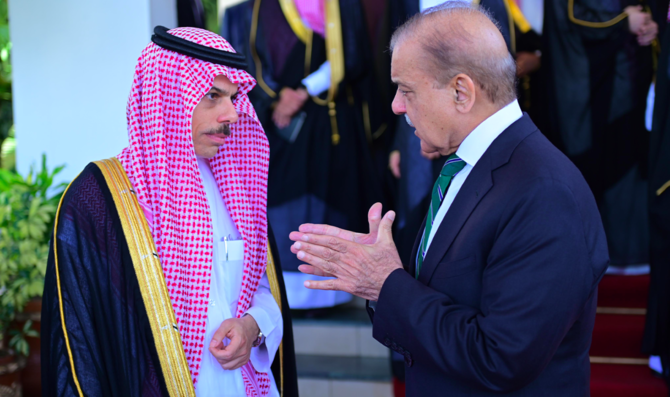
ISLAMABAD: Pakistani top leaders, including the prime minister, president and foreign minister, said on Tuesday the ongoing visit of Saudi Foreign Minister Prince Faisal bin Farhan to Islamabad would help transform a longstanding friendship between the two nations into a strategic and commercial partnership.
Prince Faisal arrived in Pakistan on Monday on a two-day visit aimed at enhancing bilateral economic cooperation and pushing forward previously agreed investment deals. His trip comes a little over a week after Crown Prince Mohammed bin Salman met Prime Minister Shehbaz Sharif in Makkah and reaffirmed the Kingdom’s commitment to expedite investments worth $5 billion.
Pakistan and Saudi Arabia enjoy strong trade, defense and cultural ties. The Kingdom is home to over 2.7 million Pakistani expatriates and the top source of remittances to the cash-strapped South Asian country.
“We aim to transform our traditionally fraternal ties into a strategic and economic partnership,” Foreign Minister Ishaq Dar said as he addressed a Pakistan-Saudi Arabia Investment Conference in Islamabad, held under the umbrella of Pakistan’s Special Investment Facilitation Council, set up last year to oversee all foreign investments.
“Your investments are not just financial commitments but are crucial in nurturing a deeply valued partnership,” Dar told the visiting dignitary.
“It is through the SIFC platform that we intend to streamline investment processes while ensuring rapid decision making and efficient handling of investments … The SIFC has a central role in augmenting our infrastructure and streamlining our regulatory frameworks to set the stage for a flourishing investment friendly economic environment.”
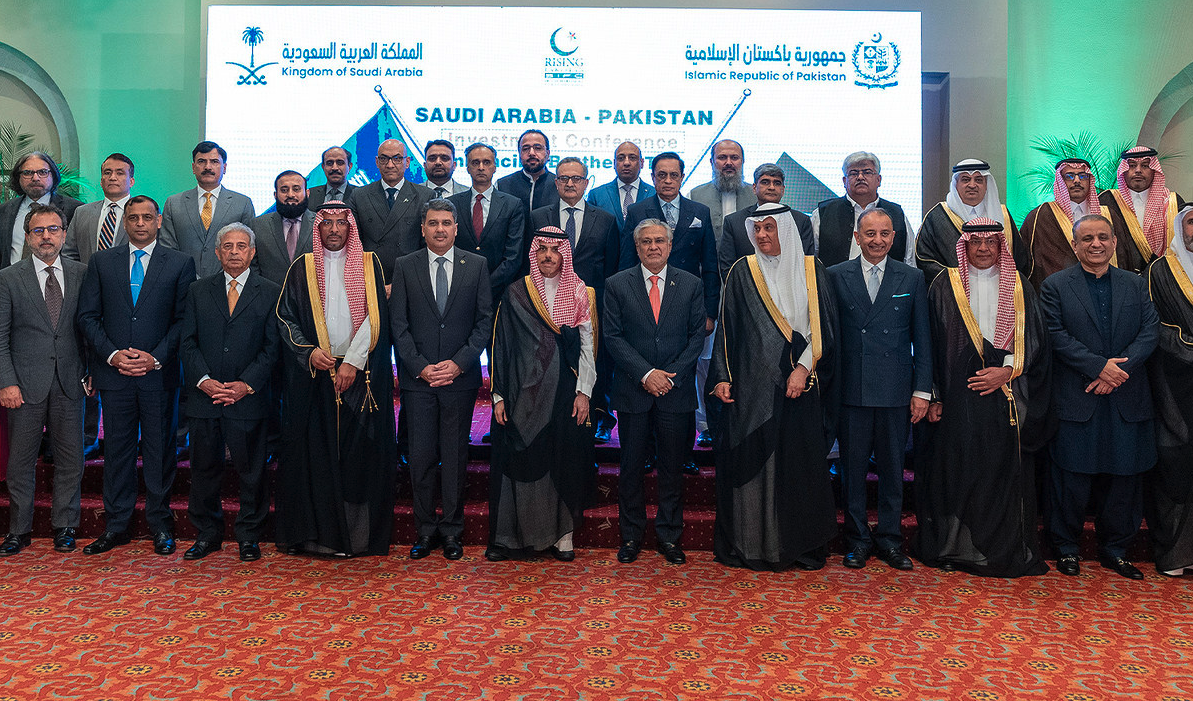
Dar said SIFC would ensure that investments were “swift and mutually beneficial, embodying our commitment to facilitating foreign direct investment in Pakistan.”
Pakistan was blessed with fertile agricultural lands, minerals and a large and dynamic population, complemented by a flourishing IT sector and abundant prospects for renewable energy creation, the foreign minister added.
He said Pakistan’s fertile lands and a vast network of water resources presented numerous investment opportunities in agri-tech and food processing, with the South Asian nation having the potential to become the region’s food basket.
“Our mining sector is marked by untapped potential especially in the expansive Tethyan belt known for its abundant deposits of copper, gold and other valuable minerals,” Dar said. “The strategic advancements in these areas are highlighted by projects such as Riko Diq copper [and gold] project which exemplifies our commitment to leveraging our natural resources for mutual benefit.”
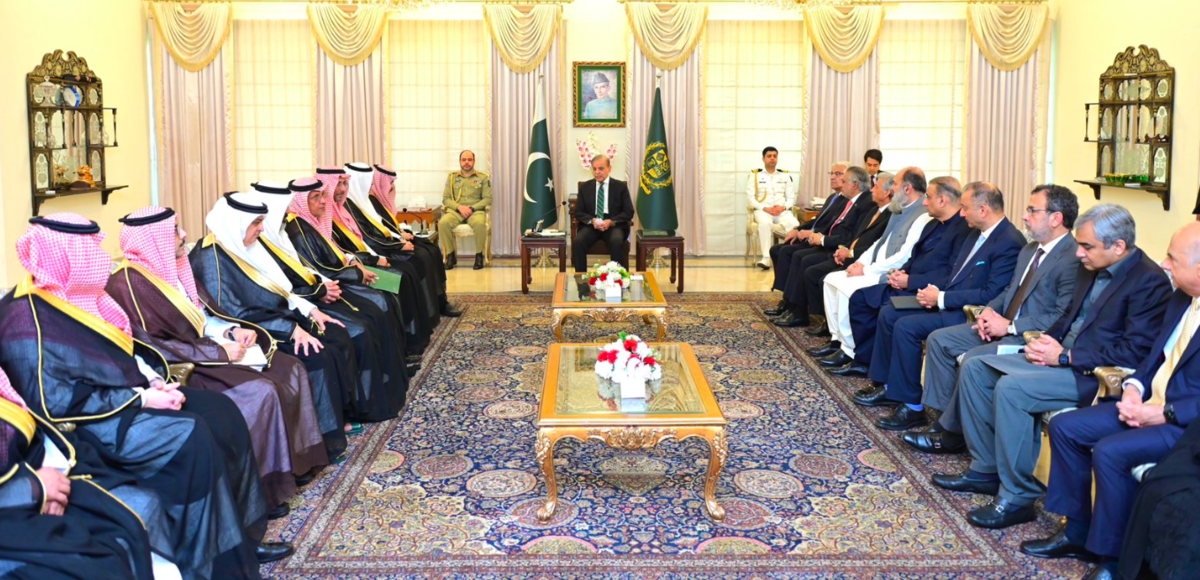
On Sunday, Pakistani state media reported Saudi Arabia was likely to invest $1 billion in the mine project in Pakistan’s southwestern Balochistan province, one of the world’s largest underdeveloped copper-gold areas.
The foreign minister said Pakistan’s goal was to transform the country into a hub of economic activity, and innovation and create an attractive environment for global investors like Saudi Arabia.
“Investing in Pakistan is not merely a placement of capital. It would actually be instrumental toward forging a partnership that promises mutual prosperity and progress,” he concluded.
“Your engagement and investment in Pakistan will be handled with utmost respect and institutionalized commitment from our side, ensuring that together we achieve remarkable success.”
MEETINGS WITH PM AND PRESIDENT
Prince Faisal also met Pakistani PM Sharif on Tuesday who said the Saudi official’s visit would herald a new era of strategic and commercial partnerships between the two long-time allies.
“The visit is the beginning of a new era of strategic and commercial partnership between Pakistan and Saudi Arabia,” Sharif was quoted as saying in a statement from his office after he met Prince Faisal. “Pakistan wants to further promote cooperation in the fields of trade and investment between the two countries.”
The PM said Pakistan was taking steps to promote foreign investment and make partnerships “mutually beneficial” for allies, adding that Islamabad was grateful to the Saudi leadership for increasing investment.
Informing the Saudi delegation about the wide potential of investment in Pakistan, Sharif briefed them about the Special Investment Facilitation Council and measures the body was taking to promote investment.
Sharif also invited the Saudi crown prince to Islamabad.
“The people of Pakistan are looking forward to the visit of His Highness the Crown Prince Muhammad Bin Salman to Pakistan,” the PM’s office said.
President Asif Ali Zardari and Prince Faisal also met on Tuesday and reiterated the two nations’ resolve to build a strong partnership and promote mutually beneficial economic cooperation.
Zardari said Pakistan was working to transform its long-standing and decades-old relationship with Riyadh into a “long-term strategic and economic partnership.”
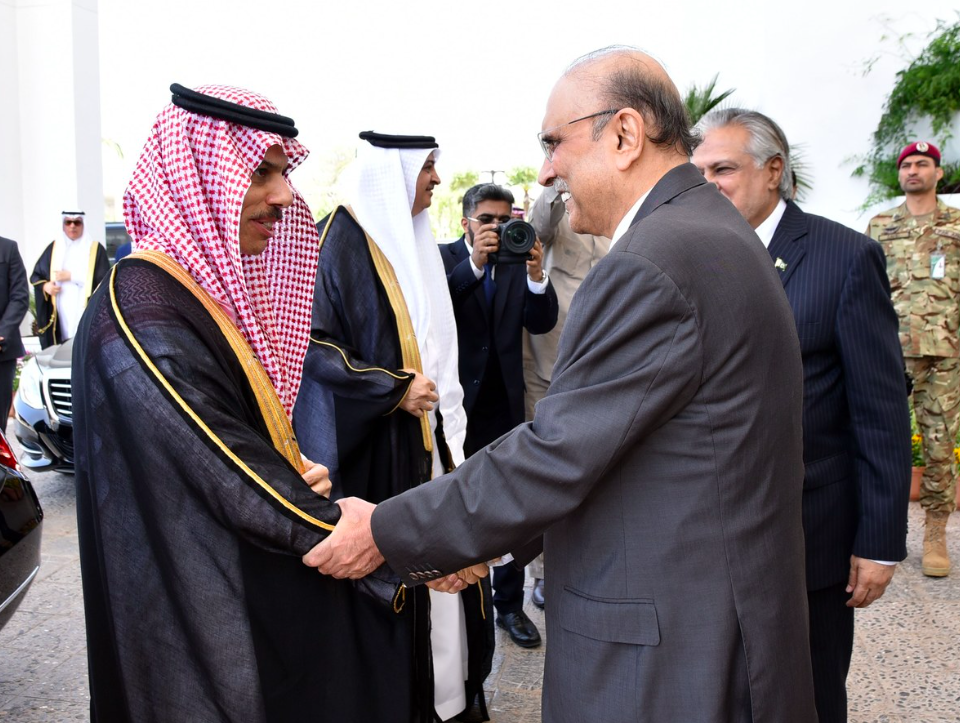
The two sides also discussed regional dynamics and recent developments in the Middle East and called for an immediate and unconditional ceasefire in Gaza and an end to Israeli air and ground offensives there.
INVESTMENT PUSH
In a statement shared with media on Monday, the Pakistan information ministry said the Saudi delegation would consult with Pakistani officials “on the next stages of investment and implementation issues.”
Saudi Arabia’s planned investment in the Reko Diq gold and copper mining project would be discussed during the visit, the ministry said, adding that Riyadh was also interested in investing in agriculture, trade, energy, minerals, IT, transport and other sectors in Pakistan:
“As a result of this visit, Pakistan’s export capacity will increase, joint ventures will be launched and new opportunities will be paved.”
Cash-strapped Pakistan desperately needs to shore up its foreign reserves and signal to the International Monetary Fund (IMF) that it can continue to meet requirements for foreign financing that has been a key demand in previous bailout packages. Pakistan’s finance minister, Muhammad Aurangzeb, is currently in Washington to participate in spring meetings of the International Monetary Fund and World Bank and discuss a new bailout program. The last loan deal expires this month.
Saudi Arabia has often come to cash-strapped Pakistan’s aid in the past, regularly providing it oil on deferred payments and offering direct financial support to help stabilize its economy and shore up its forex reserves.
Last year, however, Saudi Arabia’s finance minister said the Kingdom was changing the way it provides assistance to allies, shifting from previously giving direct grants and deposits unconditionally and moving toward mutually beneficial investment deals backed by internal economic reforms.
The PM said Pakistan was taking steps to promote foreign investment and make partnerships “mutually beneficial” for allies, adding that Islamabad was grateful to the Saudi leadership for increasing investment.
Informing the Saudi delegation about the wide potential of investment in Pakistan, Sharif briefed them about the Special Investment Facilitation Council and measures the body was taking to promote investment. The body was set up last year to oversee all foreign funding.
Sharif also invited the Saudi crown prince to Islamabad.
“The people of Pakistan are looking forward to the visit of His Highness the Crown Prince Muhammad Bin Salman to Pakistan,” the PM’s office said.
Diriyah Co. CEO appointed UN Tourism ambassador
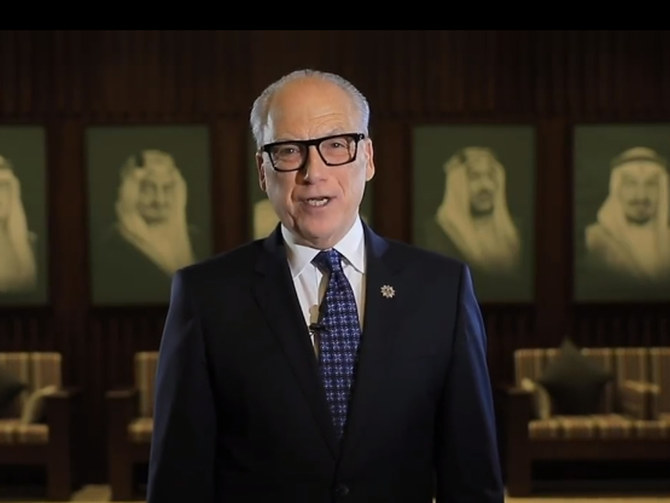
RIYADH: Saudi historical destination developer Diriyah Co.’s CEO, Jerry Inzerillo, has been appointed as a UN Tourism ambassador, joining an elite group including Lionel Messi, Georgio Armani, and Placido Domingo.
The appointment was made during the global body’s first-ever sustainability week, being held in New York from April 15 to 19, according to a press statement.
Inzerillo has been honored for his “lifelong commitment” to employing “innovative design and development strategies” that bolster local communities and cultivate new and undiscovered tourism destinations, it added.
“The UN Tourism is enormously proud to welcome Inzerillo as our newest tourism ambassador. In this new role, he will help to amplify the UN Tourism’s key messages of the ability of tourism to drive change and achieve sustainable growth,” said Secretary-General Zurab Pololikashvili.
Diriyah is located on the outskirts of the Kingdom’s capital city, Riyadh. At its core is the UNESCO World Heritage Site of At-Turaif, the historic capital of the First Saudi State.
Upon completion, the Diriyah project will host 100,000 residents, workers, students, and visitors, offering a diverse range of cultural, entertainment, retail, hospitality, educational, and residential spaces.
Developing tourist destinations like Diriyah is crucial for Saudi Arabia, as the Kingdom pursues economic diversification, in line with the goals outlined in Vision 2030.
“In the area of tourism, we have the privilege to work in one of the world’s fastest growing sectors that employ 320 million people today and will add a further 100 million within the next decade. But with that privilege comes enormous responsibility to ensure that our developments are innovative, actionable and have real and enduring impact,” said Inzerillo.
Spearheaded by Inzerillo, Diriyah Co.’s development strategies adhere to the highest international sustainability, preservation, and conservation standards. They aim to support the mobility, health, and well-being of the local community.
“A key part of our master planning strategy is that our commitment to sustainable practices must also extend beyond the day-to-day operations of Diriyah Co.,” he added.
In January, Inzerillo told Arab News that Riyadh will be undergoing consistent transformative change “every year” that will allow visitors and residents to feel a palpable difference.
He added that visitors to the Kingdom’s capital do not need to look forward to 2030 to begin to witness the changes that the tourism sector is undergoing.
Formerly known as the World Tourism Organization, UN Tourism is a global agency responsible for promoting responsible, sustainable, and universally accessible tourism.
As a leading international organization, it advocates for tourism as a catalyst for economic growth, inclusive development, and environmental sustainability.
Closing Bell: Saudi benchmark index edges down 1.64% to 12,500
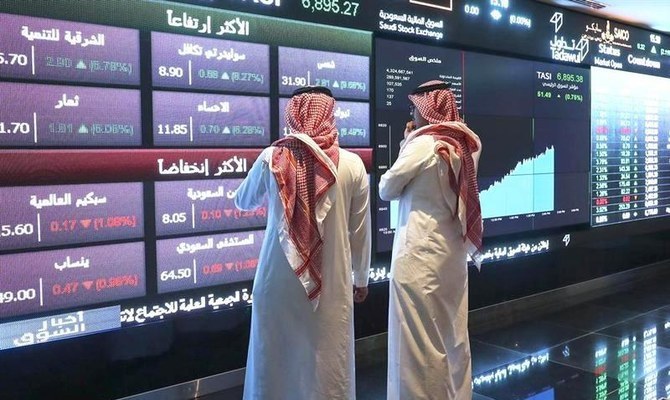
RIYADH: Saudi Arabia’s Tadawul All Share Index shed 207.91 points or 1.64 percent on Tuesday to close at 12,500.43.
The total trading turnover of the benchmark index was SR10.22 billion ($2.72 billion), with 42 stocks advancing and 186 declining.
Nomu, Saudi Arabia’s parallel market, also lost 239.21 points to close at 26,309.38. The MSCI Tadawul Index shed 31.821 points to 1,578.42.
The best-performing stock was Red Sea International Co. The firm’s share price soared by 10 percent to SR33.
Other top performers were Etihad Atheeb Telecommunication Co. and Saudi Steel Pipe Co., whose share prices surged by 6.57 percent and 4.59 percent respectively.
Meanwhile, ACWA Power’s share price hit SR427 on Tuesday, an all-time high since the company’s listing on the main market. However, the company closed its trading at SR417.
The worst performer of the day was Advanced Petrochemical Co., as its share price dipped by 5.30 percent to SR42.90.
On the announcements front, United Electronics Co. revealed that its net profit for the first quarter of this year climbed 11 percent to SR93.9 million.
In a Tadawul statement, the company, also known as eXtra said that the rise in net profit was driven by a 10 percent year on year rise in total revenues.
Meanwhile, Al-Moammar Information Systems announced that its board of directors has recommended the payment of a cash dividend at 8 percent of capital, or SR0.8 a share for the first quarter of 2024.
Moreover, the company’s board also recommended a three-year dividend policy until 2026.
“The policy will be submitted for approval at the upcoming general assembly meeting, the date of which will be announced later. The policy aims to maintain a minimum dividend per share of 50 percent of net profits annually,” said Al-Moammar Information Systems in a statement.
Saudi companies to attend energy conference in Dubai
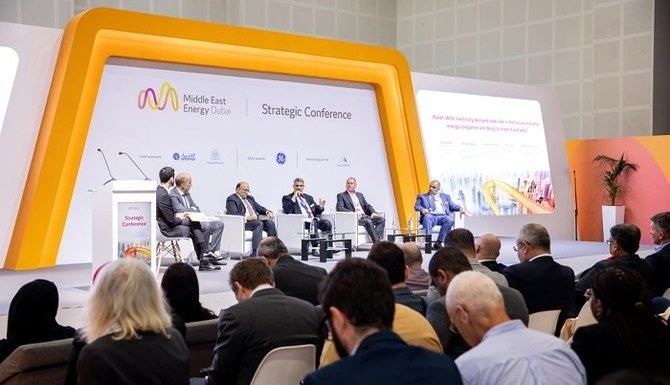
RIYADH: Comprehensive knowledge sharing is set to unravel at Dubai’s Middle East Energy conference, with over 17 Saudi companies participating in the event.
The gathering, hosted at the Dubai World Trade Centre starting April 17, highlights the Middle East and Africa’s most extensive energy event, now in its 49th edition.
A rescheduling to include an additional day on April 19 follows unexpected adverse weather conditions that led to pushing the event’s opening day from April 16 to April 17.
This year, the Middle East Energy conference will expand across 14 halls, covering 28,500 sq. meters and will welcome more than 1,500 exhibitors and feature 14 national pavilions, showcasing the breadth of the global energy sector.
Saudi Arabia is well-represented, with companies like Bahra Advanced Cable Manufacture Co. Ltd., Jeddah Cables Co., and Riyadh Cables Group Co. leading the contingent.
Other participants include MEMF Electrical Industries Co., Electrical Industries Co., and International Tube & Conduit Co. Ltd.
The conference will also feature Middle East Specialized Cables Co., Red Sea Cable Co., and United Transformers Electric Co., alongside Al-Haitam for Industries & Economic Development and Asharqiyah Cables Co. for Industry.
With more than 250 speakers and three high-level strategic conferences, including the leadership summit, technical seminars, and the Intersolar and Electrical Energy Storage Middle East conference, the event promises crucial insights into energy transition, real-world solutions, and emerging challenges in sustainability and cybersecurity.
These dialogues are key as the sector seeks to transform rapidly to meet global energy demands responsibly.
Industry experts believe the region plays a significant role in the road to net-zero.


